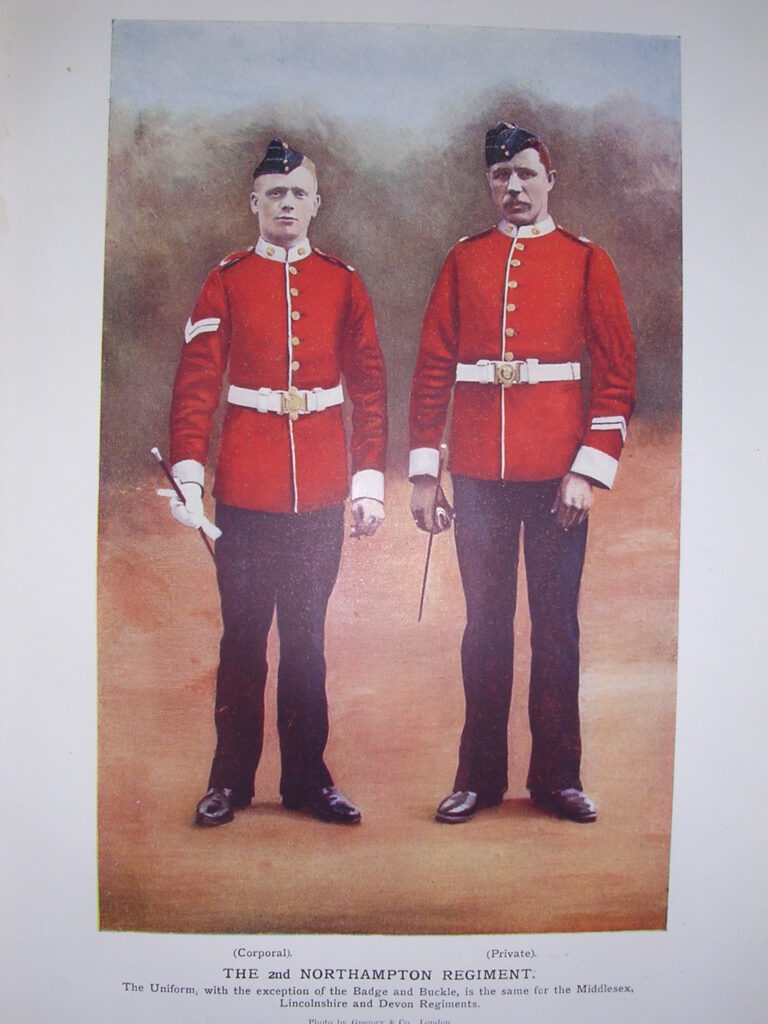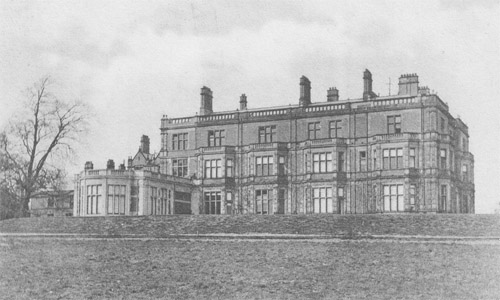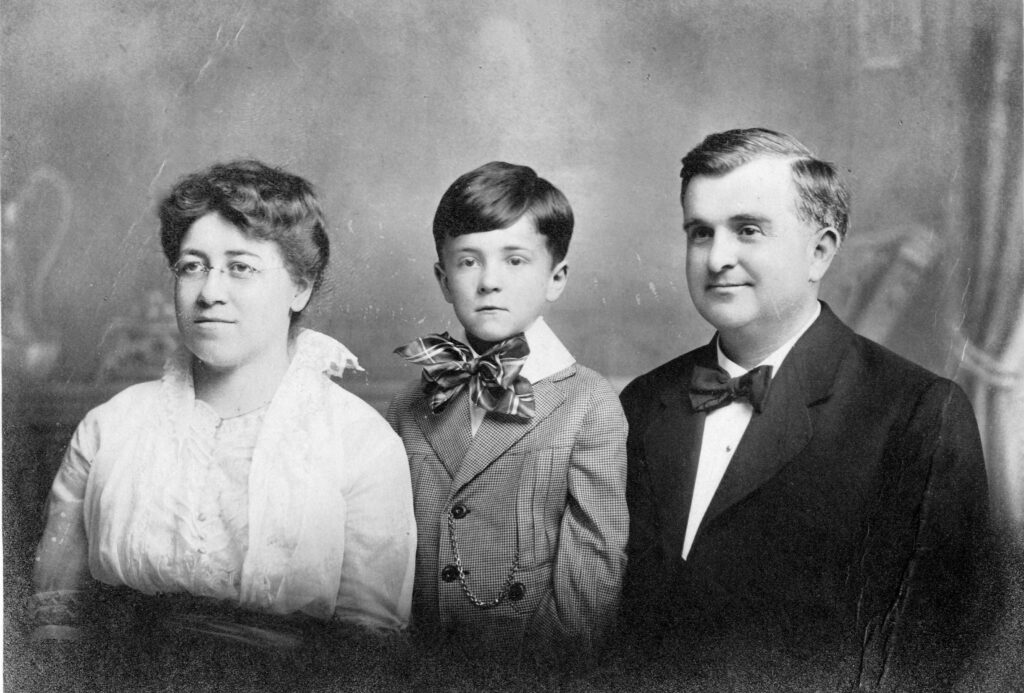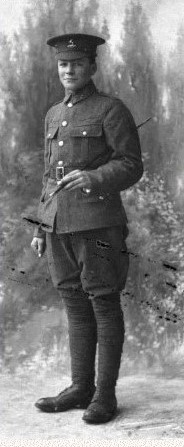Burrus Favell
Burrus Favell was from the village of Copingford, near Huntingdon. In August 1896, 3 months short of his 21st Birthday, he went to Northampton and signed up as a regular soldier. His army record probably tells us most of what we know about him, as he missed both the 1901 and 1911 census, being out of the country on both occasions. There is also some mystery about his death in 1917.
When he signed up for the Army he was described as a brown eyed with brown hair, weighing 11 stone and working as a Groom. He signed up to serve in the Northamptonshire Regiment for an initial 5 years, followed by a further 5 years in the reserves. When the Boer War started in South Africa he was posted there and did not return until his first 5 year term was completed. He was discharged onto the reserve in October 1903.
He was awarded two campaign medals for his service. The Queen’s South Africa Medal with clasps for Belmont, Modder River, Orange Free State and Transvaal. He also received the King’s South Africa Medal with clasps for South Africa 1901 and 1902, as of course the long reign of Queen Victoria had ended while he was abroad. The first two clasps were for battles, while the latter were more areas of ‘occupation.’


The next we know of him is from family postcards that indicate he was working at Byrkley Lodge stables, Burton on Trent, owned by Sir William Bass. Bass was the son of Hamar Alfred Bass whose father’s family traced its fortunes to William Bass, who founded the famous brewery company.
William Bass was educated at Harrow School and started at Trinity College, Cambridge, but appears to have decided to join the army instead. He was commissioned a second lieutenant in the 10th Royal Hussars in 1899 and, like Burrus, served in Boer War.
He succeeded to the baronetcy of Stafford in 1909 following the death of his uncle and was first chairman of Provincial Cinematograph Theatres, which was founded in 1909 with the aim of opening a cinema in every town in the UK with a population of 250,000 or more. He also gave financial support to the London Film Company
However, Sir William (or Billy Bass as he was known) was most noted for his ownership of racehorses. He was a member and steward of the Jockey Club, was on the National Hunt Committee and joint Master of the Royal Hunt. So Burrus we guess was a groom looking after the race horses. But maybe his service in South Africa had some link with him getting that position.
Burrus is recorded as travelling to the USA in 1908, 1910, and again in February 1911, arriving in New York. This was likely to be while working for Sir William and could have been accompanying his horses for racing in the USA. In 1911 he is recorded as being a Groom and that he was visiting W Clark, Troop A Armoury, Orange Street, New Haven.
The story in his family is that he was thought to have been working for a titled family in New York (probably Sir William) but he may have them gone on to work for others. There is a photo handed down within his family that has a note on the back saying “Gentleman in USA, he lived with Gentleman service.” The photo is of a man and woman with a young boy. Probably his employers.
Burrus never returned from the USA and the story handed down is that he died after being shot in either a case of mistaken identity, or due to being in the wrong place at the wrong time. However, despite much searching, no newspaper reports or other records have been found. The Favell surname is very often found to be mis-spelled or mis-pronounced, and the unusual first name of Burrus is subject to the same vagaries. A definitive answer will be hard to find.


However, recently a death certificate has come to light for an English Stableman, who died in East Brunswick, Schuylkill County, Pennsylvania in 1917. Around 125 miles from New York as the crow flies. Bert Favell (or possibly Bart) was aged ‘about 42’ and single. His date of birth, father’s name and mother’s name are given as ‘unable to obtain.’ His birthplace is stated as England and cause of death as ‘paralysis of the heart’.
The story regarding Burrus being shot during a case of mistaken identity could still have basis in fact, as these family legends often do. But possibly this might not have actually resulted in his death. There may yet be more to find out.
A final even sadder postscript relates to his namesake nephew, Burrus James Hales. Son of his sister Mary Elizabeth Favell. Burrus junior was serving in the British Army in France. Originally joining the Huntingdonshire Cyclists Battalion, he was a Private in the Berkshire Regiment when he was killed in action on May 3rd 1917. The day after Burrus died in Pennsylvania.
The tragedy of Mary Elizabeth of losing her son and her brother within two days were enough for her to forbid any of her children naming any of their offspring Burrus, as she believed the name was now cursed.